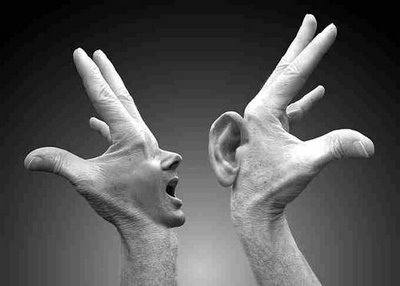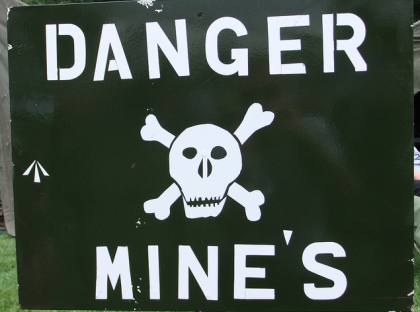Jonathan Dodd‘s latest column. Guest opinion articles do not necessarily reflect the views of the publication. Ed
Punctuation. What’s the point, eh? It’s been on my mind this week, partly because my writers’ circle has been discussing it, and because I have noticed lots of it all over the place.
I’ve been watching myself and my reactions all week, puzzling over my responses. For some reason I get apoplectic over some examples, whereas others just make me laugh. I’ve been trying to work out why. Trying to work things out is a bad habit of mine, of which I have not yet cured myself. I have the same problem with grammar.
Attaching problematic labels to myself
I suppose I’m already attaching problematic labels to myself by admitting that I care about it all, in this age of abbreviated communication, with textspeak and tweets and so many forms of slang around.

Sometimes it seems like never before have so many people said so much in so many different ways with so little effect. Like a modern-day Tower of Babel, just growing and growing, up to the sky and beyond.
I was taught in a school where great emphasis was placed on written and spoken English. This was partly because my teachers recognised that my gateway to jobs and loans and other good things in life was initially dependent on the impression that a well-written letter would make, and then followed up by an ability to express myself in a clear and understandable way.
Building blocks of thought
I never saw this as a class issue. At the time it was just one of the elements of school life, like sport and uniforms and staring out of the window not paying attention. My teachers didn’t know how things would change, and I certainly didn’t.

I don’t even mind that they have changed. I don’t think the world is worse than it used to be. Some things are better, and some things are worse, and there are a hell of a lot more things now than there used to be.
The reason I care about language, and meaning, and grammar and punctuation, is because I learned indirectly that these are the building blocks of thought and communication. Whenever I think a thought, it turns itself into a sentence, and if the thought isn’t good enough the sentence feels incomplete or badly-built, so I go back and get it right. Then it’s ready to be spoken to someone else, or written down on paper or this screen. If someone doesn’t understand my meaning, it’s my fault for not making it clear enough.
At least that’s the theory
In reality, the sentence that contains my thought like a message in a well-directed bottle needs to be heard or read by someone who has the same skills or attitudes towards language that I have.

If someone isn’t listening or paying attention or reacts to a part of it before hearing all of it, then it won’t achieve its purpose. I know this, because I’m guilty of the same thing myself. Hopefully not too often.
I think of all the elements of language like the materials we need if we’re going to build a house. Bricks and mortar and wood and tiles and glass are all necessary and each of these materials have a role to play, but what matters is that the house is fit for purpose.
The apostrophes are loose again!
So I’m not really bothered if someone uses bad spelling, or puts too many commas in, or gets into a mess with apostrophes.

What gets me riled is reading a sentence that makes no sense or leaves things out, or demonstrates no thought beforehand, or indeed, is very carefully constructed to convey no meaning at all, like so much that comes out of official so-called communications.
It saddens me when someone uses “could of” instead of “could have”’, because one means something and the other doesn’t. I don’t mind loose apostrophes, but a sign that says “Kebabs, Salads and Pizza’s” makes no sense.
Sweat – the next Bond villain
What makes me most angry is when very sophisticated people spend their working lives engineering language to sell us ideas or products by dropping in linguistic messages we don’t even notice most of the time, that can affect our thoughts and behaviour without us even realising.

I saw an advert recently for a deodorant. It said this – “Protects you from sweat!” When did sweat become dangerous? The only form of danger that sweat could possibly expose us to is some sort of social disgrace brought on by ridicule when someone is caught not using the advertised deodorant, which is no danger at all. But the insidious idea is planted nonetheless, demonising something ordinary and universal and natural.
It’s good to talk
I think the single most incredible thing that we humans have invented is the ability to transfer something that happens within our brains intact into the brain of another human being through the medium of language.

It’s beautiful and wonderful and infinitely variable and it should be treated as an art form and worshipped, and I don’t like to see it mistreated, either through sloppiness or bad intent.
If you have been, thank you for reading this.
Image: Bill Longstaff under CC BY 2.0
Image: Rob Lee under CC BY 2.0
Image: ninnet under CC BY 2.0
Image: sinabeet under CC BY 2.0
Image: Lee J Haywood under CC BY 2.0
Image: Sean MacEntee under CC BY 2.0
Image: Zorba The Greek under CC BY 2.0




